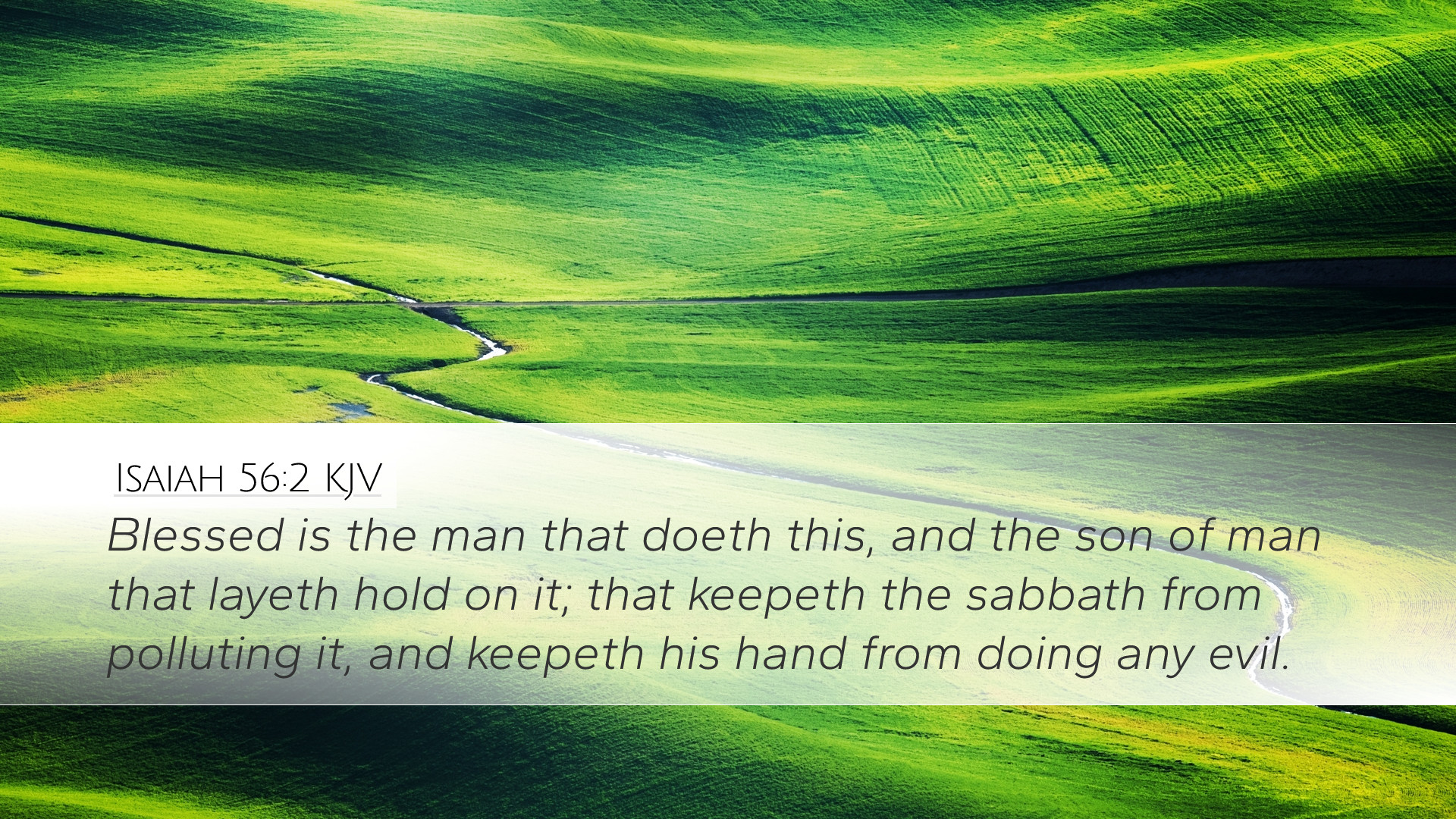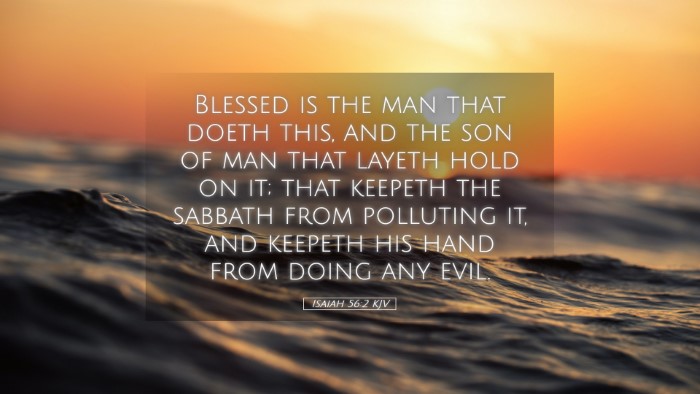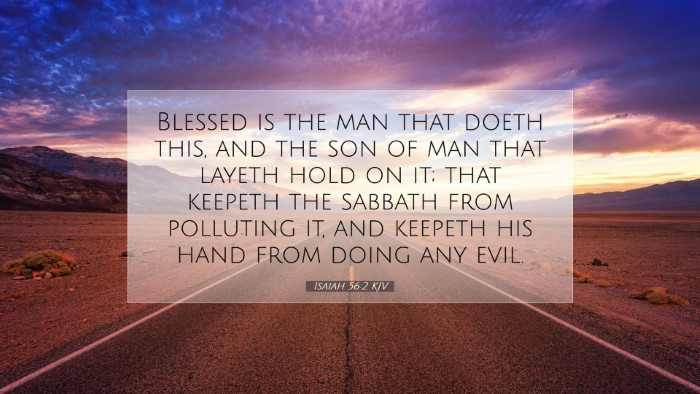Insights on Isaiah 56:2
The Old Testament prophet Isaiah delivers a powerful message in Isaiah 56:2, which reads:
"Blessed is the man who does this, and the son of man who holds it fast; who keeps the Sabbath, not profaning it, and keeps his hand from doing any evil."
This verse encapsulates a divine promise of blessing for those who uphold the principles of righteousness as decreed by God. Below, we explore the commentary insights from notable theologians and scholars like Matthew Henry, Albert Barnes, and Adam Clarke.
1. The Meaning of "Blessed"
Matthew Henry elaborates on the term "blessed" in this context. He notes:
- Divine Favor: The blessing refers to the divine favor bestowed upon those who adhere to God’s commandments. This divine endorsement is not merely an external mark of approval but signifies an internal state of peace and fulfillment.
- Spiritual and Social Implications: Being blessed also implies an alignment with God’s will, leading to peace with one’s self and harmony within the community.
2. The Importance of Sabbath Keeping
Albert Barnes emphasizes the significance of the Sabbath in the life of the faithful. His insights include:
- Spiritual Rest: The Sabbath serves as a day of rest and spiritual rejuvenation, instituted by God as a reminder of His creation and His covenant with humanity.
- Covenant Sign: Observance of the Sabbath is a sign of the covenant, connecting believers to their heritage and identity as God’s chosen people.
3. Holiness in Action
Adam Clarke's interpretation underscores the necessity of abstaining from evil:
- Moral Integrity: Clarke emphasizes that keeping one’s hand from doing evil is crucial. True worship is not limited to rituals but requires an active commitment to live righteously.
- Daily Commitment: This call for holiness extends beyond the Sabbath, presenting a lifestyle of continuous devotion and ethical living.
4. The Call to the Outsider
Isaiah 56 is not merely focused on the insider but also addresses the outcasts and foreigners:
- Inclusivity of God's Plan: Matthew Henry reflects on the universal call to righteousness, emphasizing that even the Gentiles are welcomed into this promise as they hold fast to God’s laws.
- A New Community: Albert Barnes notes that the message of inclusion signifies the broadening of God’s community, inviting all who fear Him to partake in His blessings, highlighting God’s mercy and grace.
5. Application for Today’s Believers
This verse carries timeless relevance for the church today:
- Call to Righteousness: Modern believers are called to live in a manner that reflects God’s justice and mercy, avoiding actions that harm or exploit others.
- Reflection and Rest: The principle of Sabbath-keeping invites contemporary Christians to incorporate rest and reflection into their busy lives, allowing spiritual renewal that inspires service and outreach.
- Inclusivity in Worship: There is a pressing need for churches to reflect God’s inclusive love, welcoming diversity while upholding the truth of the Gospel.
Conclusion
Isaiah 56:2 is a profound reminder of God's desire for His people to live righteously, embrace rest, and extend grace. As highlighted by our esteemed commentators, this verse encourages a holistic approach to faith that encompasses both personal sanctity and communal responsibilities. In doing so, believers not only experience individual blessings but also contribute to the establishment of a just and merciful community reflective of God's kingdom.


